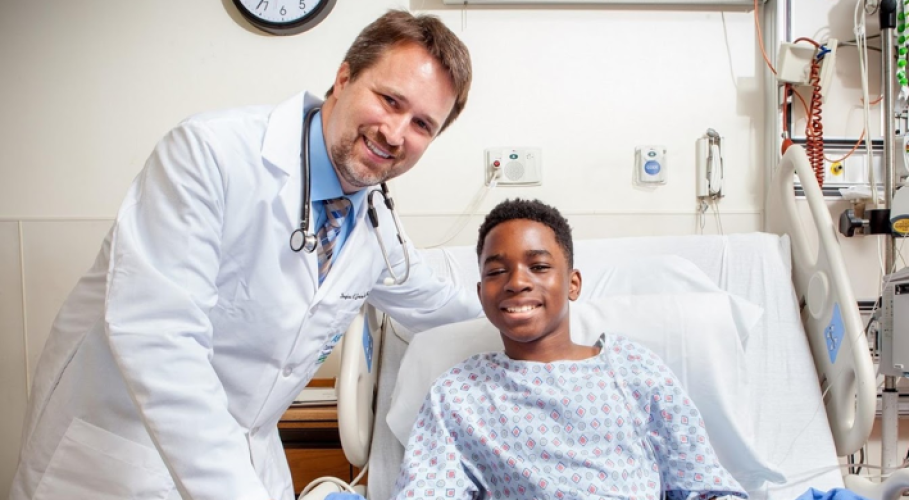More information coming soon!
A pediatric cancer predisposition syndrome happens when a child is born with a genetic variant that changes how a specific gene works. This gene, often called a tumor suppressor gene, cannot protect cells from becoming cancerous when it isn’t working properly. The mutation increases the overall risk for affected children to develop cancer or a number of benign tumors, especially at younger ages. The Cancer Predisposition Program treats children under the age of 21 who are at an increased risk of developing cancer due to a cancer predisposition syndrome.
For more information, click here.
Fertility preservation is offered as a continuum of care, treating not only the diagnosis at hand but preserving patient health and wellness into the future after treatment is over. Some treatments like chemotherapy, radiation, surgery, or bone marrow transplants (BMT) may damage the ovaries or testes. By cryopreserving (freezing) sperm, eggs or tissue from the ovaries or testes, patients have options if they experience infertility, or difficulty having children, in the future.
For more information, click here.
The High-Risk Leukemia and Lymphoma Program was created to streamline and coordinate treatment and care for pediatric patients with high-risk leukemia and lymphoma. A child may be considered to have high-risk leukemia or lymphoma due to markers present in or on the leukemia or lymphoma cells at diagnosis, the leukemia or lymphoma not going away quickly with chemotherapy (refractory), or the leukemia or lymphoma coming back after initially going away (relapse).
For more information, click here.
The Precision Medicine Program leverages genomic sequencing for pediatric patients with high-risk tumors, with the goal of identifying alterations that can impact therapies and improve outcomes. Our team of pediatric specialists is also developing novel, cutting-edge research approaches to enhance the safety and efficacy of personalized medicine treatments.
For more information, click here.
More than 85 percent of childhood cancer survivors experience a significant chronic health condition after treatment. These effects can occur years after treatment and may include physical, psychological and social issues. Since 2001, the Aflac Cancer Center has offered its multidisciplinary Cancer Survivorship Program to address the unique needs of childhood cancer survivors who are at least two years off therapy.
For more information, click here.



